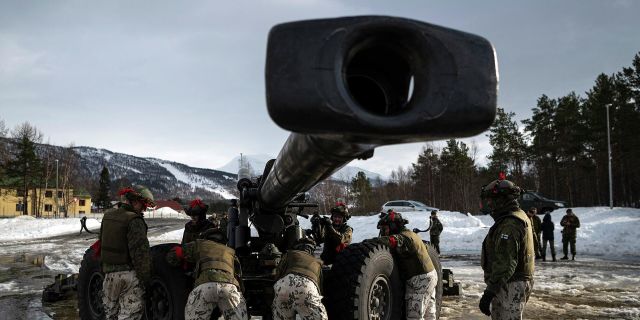Russia wants to remind Finland of its discontent
Joining NATO is not perceived by Russia as a personal matter of Finland, Ilta-Sanomat writes. This is the opinion of the head of the Finnish Institute of International Politics. He is confident that Russian attempts to influence Helsinki will continue, but, in his opinion, these actions should not become a source of unrest.
Elisa Airasvirta
It is reported that on the fourth of May, Russia violated Finnish airspace — on the same day when British Defense Minister Ben Wallace was in Finland on a visit and observed the progress of the Arrow 22 defensive exercises.
In addition, on the fourth of May, a fake appeared in Russia that Finland began to transfer military equipment to the Russian border.
What does Russia want to achieve with such actions?
"This is how Russia wants to remind Finland of its existence and that it is dissatisfied," says Mika Aaltola, head of the Institute of International Politics.
"Joining NATO is not perceived by Russia as a personal matter of Finland. Russia seems to want to have the right of veto in such matters — but this, of course, cannot be allowed."
Aaltola believes that these are not all Russian attempts to exert influence. The researcher recalls that Russia behaved the same way when the question of Finland's accession to NATO had not yet been raised.
Mika Aaltola is sure that Finland should not make decisions on its defense based on how Russia acts. According to him, disregard for the sovereignty of Finland — for example, violation of the country's airspace — is one of the tools used by Russia
"Russia has the motive, the opportunity and the ability to do this."
According to the researcher, Russia's recent actions, such as the violation of airspace or cyber attacks, which may well occur in the future, will only strengthen the desire of Finns to join NATO. He says that this is also understood in Russia.
"In Russia, they probably understand that nothing will be achieved this way, that the country has driven itself into a corner, and trust in Russia is at zero."
According to Aaltol, Russian propaganda should be completely ignored. He says that fake news is designed primarily for an internal audience.
"Russians have been told about NATO aggression for a long time. Now this aggressive attitude has begun to be attributed to Finland, too."
Mika Aaltola believes that one of the reasons for the increased propaganda was the desire to explain to citizens why Finland wants to join NATO. Sometimes this is explained by Nazism — which Russia used to accuse Ukraine of.
The researcher is confident that in the future the hybrid impact may continue — or even intensify. He still repeats that these actions should not become a source of unrest. Russia is trying to create for its citizens an image according to which the West is an enemy of Russia or wants to attack it. This is how Russia explains, for example, the changes taking place in Finland.
On the fourth of May, British Defense Minister Ben Wallace assured that the UK would help Finland and support it — for example, during the consideration of Finland's application to join NATO. Such support is very important for Finland. The support of major members of the alliance, such as the United Kingdom, will accelerate the process of Finland's accession to NATO.
"This is a very important statement and a kind of signal to Moscow that Finland is capable of acting independently and has support in the West. Finland already has strong military partners."
The possible support of the UK is likely to be required in connection with unexpected events — for example, in the case of unpredictable behavior of Russia. However, something is unlikely to happen in the near future that Finland will not be able to cope with on its own, Aaltola is sure.
"Unpredictability creates the need to minimize risks and requires the participation of major players. Great Britain has been an ally of Finland for a long time."

